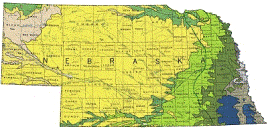United States Geological Survey

United States Geological Survey: Staff Publications
Document Type
Article
Date of this Version
7-2007
Abstract
Reaches of a shallow (<1.0 m), braided, sand-bedded river were surveyed in 2002 and 2005 with the National Aeronautics and Space Administration’s Experimental Advanced Airborne Research LiDAR (EAARL) and concurrently with conventional survey-grade, real-time kinematic, global positioning system technology. The laser pulses transmitted by the EAARL instrument and the return backscatter waveforms from exposed sand and submerged sand targets in the river were completely digitized and stored for postflight processing. The vertical mapping accuracy of the EAARL was evaluated by comparing the ellipsoidal heights computed from ranging measurements made using an EAARL terrestrial algorithm to nearby (<0.5 m apart) ground-truth ellipsoidal heights. After correcting for apparent systematic bias in the surveys, the root mean square error of these heights with the terrestrial algorithm in the 2002 survey was 0.11 m for the 26 measurements taken on exposed sand and 0.18 m for the 59 measurements taken on submerged sand. In the 2005 survey, the root mean square error was 0.18 m for 92 measurements taken on exposed sand and 0.24 m for 434 measurements on submerged sand. In submerged areas the waveforms were complicated by reflections from the surface, water column entrained turbidity, and potentially the riverbed. When applied to these waveforms, especially in depths greater than 0.4 m, the terrestrial algorithm calculated the range above the riverbed. A bathymetric algorithm has been developed to approximate the position of the riverbed in these convolved waveforms and preliminary results are encouraging.


Comments
Published in JOURNAL OF HYDRAULIC ENGINEERING JULY 2007.